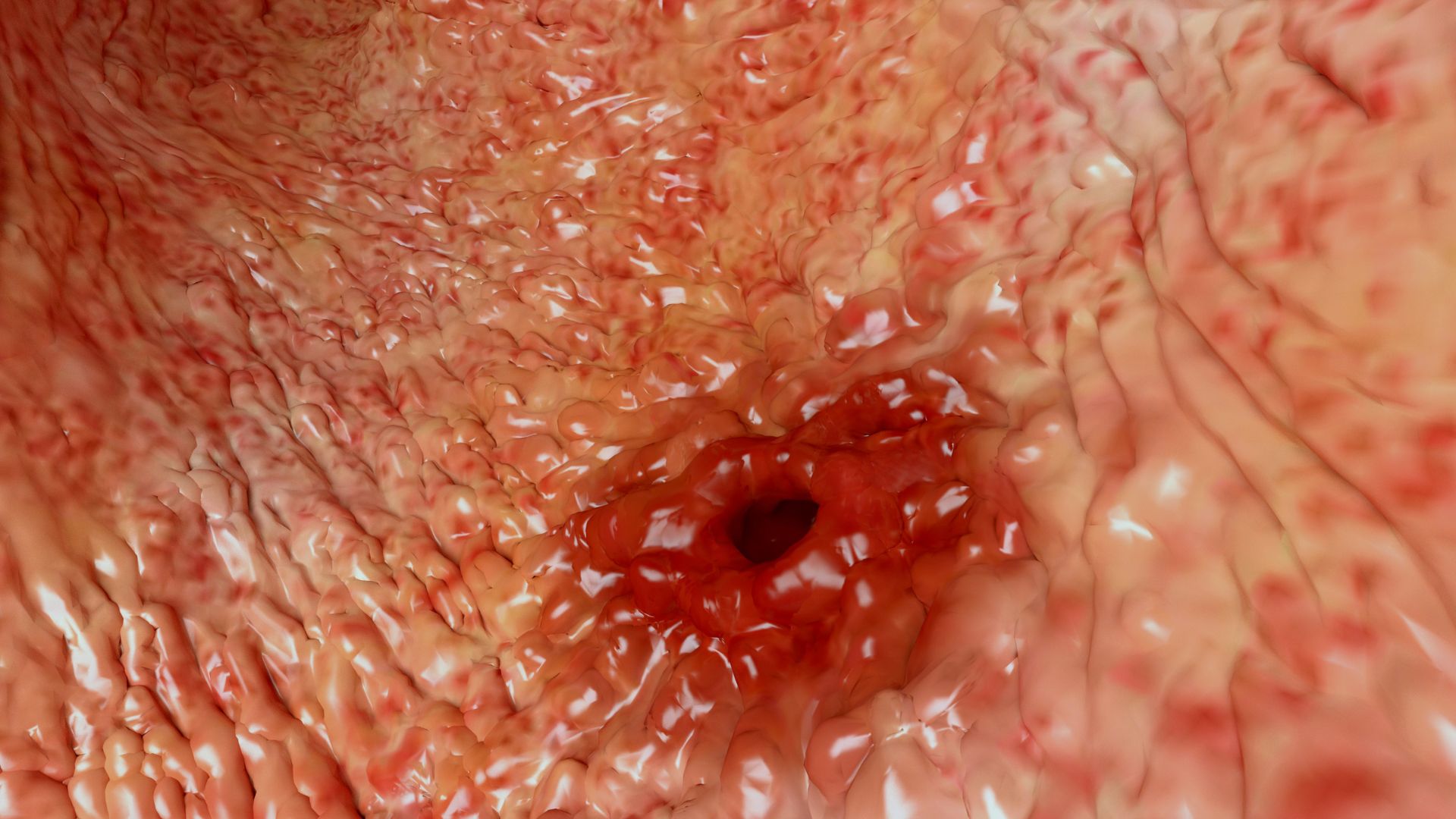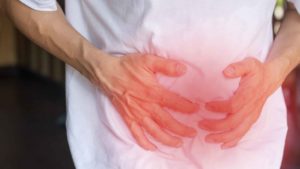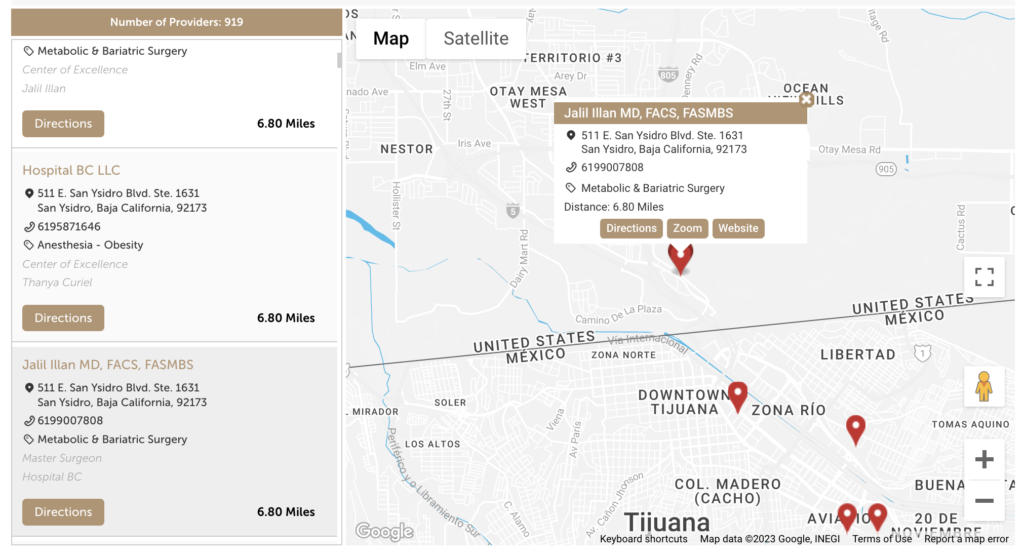Ulcerations after gastric bypass surgery are one of the possible complications to occur post-surgery. They can cause significant pain for patients and increase work for the surgeon. The most prevalent type of ulcer is the marginal ulcer and mucosa erosion at the gastrojejunal anastomosis.
These ulcerations that occur after gastric bypass can be easily treated by medications, but some cases turn so critical that surgical intervention is needed. Here is a detailed analysis of the signs and symptoms of an ulcer after gastric bypass.
What is an Ulcer?
The destruction of the mucosa, the lining of the digestive tract that serves as a barrier to protect gut hormones and digestive juices, causes ulcers. Erosions can develop in the duodenum, stomach, or esophagus. Although it is typically benign, stomach cancer can develop if it turns malignant.
Drugs and excessive acid production frequently bring on peptic ulcer disease. The most common symptom among ulcer patients is abdominal pain. Other problems that patients could have include bleeding, hematemesis, bloody feces, leaking, and in extreme circumstances, perforation.
What Makes Ulcers Occur After a Bariatric Surgery?
After weight loss surgery, especially a gastric bypass, ulcers can develop at any time, early or late. Following RNY bypass, ulcers seldom form; less than 16% of patients generally experience it.
Acidic or spicy food, caffeine, alcohol, usage of NSAIDs (Ibuprofen, Aleve, Motrin, and Naproxen), use of tobacco products, stress, Helicobacter pylori (H. pylori), non-absorbable sutures, and steroids (Prednisone) are the leading causes of gastric bypass ulcers.
Non-Steroidal Anti-Inflammatory Drugs (NSAIDs) can cause stomach ulcers or inflammation (gastritis). The damages may appear as early as a few months or several years, depending on a patient’s situation.
Signs and Symptoms of Ulcers After Gastric Bypass
After your gastric bypass surgery, the following symptoms of stomach ulcers after gastric bypass are most typical to contract:
• The upper abdominal pain (especially after meals)
• Gas and bloating
• Vomiting
• Nausea
• Reduced appetite
• Stomal impingement
• Bleeding (Blood in vomit or stool)
Patients who have bleeding ulcers may develop anemia over time. You might also experience a Gastrogastric Fistula, which causes extreme stomach pain, nausea, and vomiting when blood and acid seep from your pouch into your intestines. Asymptomatic Marginal Ulcer problems affect about 25% of patients after gastric bypass surgery.
Ulcers can quickly develop into severe problems with life-threatening consequences. You risk bleeding, stomach perforation, or even worse if you ignore these signs. You should consult your doctor to identify and treat any ulcers as soon as possible, so your ulcer symptoms after gastric bypass do not turn into a serious problem.
Main Types of Ulcers After Gastric Bypass
Stomal and marginal ulcers are more frequent due to intestinal rerouting, which joins the lower intestines and stomach to avoid digestion. Marginal ulcers are mainly a side effect of using NSAIDs, steroids, and tobacco products.
There are mainly two types of ulcerations that you may experience after your Gastric Bypass:
Jejunum Ulcer
When the gastrointestinal anastomosis’ mucous membrane loses its structural integrity, a marginal ulcer (MU), also known as an anastomotic ulcer, forms. The jejunal side of gastrointestinal anastomosis is typically where erosion occurs. Stomal ulcers, as they are known, are uncommonly encountered on the stomach pouch itself. Anastomotic ulcer patients can develop gastro-gastric fistulas.
The breakage of the staple line in the gastric remnant is the root cause of gastrogastric fistula (GGF). Between the gastric pouch and the remaining stomach, there is anastomotic leakage. The stomach’s acid production might harm the lining of the small pouch if it backs up into it.
Duodenum Ulcer
A peptic ulcer, also known as a duodenum ulcer, refers to the eroded coating on the duodenal side of the remaining stomach or duodenum. Patients having RNY bypass are less likely to develop this kind of ulcer, which can be treated endoscopically.
Treatment for Gastric Bypass Ulcer
Your Ulcer can be checked by doing an Esophagogastroduodenoscopy, involving a scope inserted through the mouth into the pouch with which your doctor will check the ulcers (EGD). Usually, treating the ulcer with medication will make it go away. It is still necessary to perform surgery to address the issue in cases of bleeding, and perforated ulcers, as not performing any treatment can worsen the ulcer.
There are two types of treatments that can be done to treat ulcers after gastric bypass surgery:
Surgical Treatment
Endoscopic therapy for bleeding ulcers has a reduced risk of complications than laparoscopic surgery. Surgery is necessary to repair when lesions are present, and stomach contents seep into the body due to a perforated ulcer. Chronic ulcers require surgery revision when they heal or sometimes do not fully recover.
Non-Surgical Treatment
Patients with RNY, who have symptomatic stomach ulcers, are treated with drugs like proton pump inhibitors (PPIs) and cytoprotective medicines (sucralfate). The PPI medical treatment prevents the stomach from producing acid, which treats the ulcer. Always seek advice from your primary care physician before taking PPIs or any specialized medication to treat nausea, vomiting, or stomach pain.
Prevention of Ulcers After Gastric Bypass Surgery
Post-bariatric surgery stomach ulcers are painful and depressing. Your chances of losing weight may be reduced by discomfort and blood loss, which might lower energy levels. The bariatric surgeon might reduce the pouch size to help produce less acid. Additionally, absorbable sutures can be used to reduce the likelihood of ulceration.
Fortunately, there are the following steps you can take to avoid developing stomach ulcers after gastric bypass:
• Avoiding food that triggers your stomach pain
• Managing stress levels
• Avoiding alcohol
• Drinking plenty of water and fluids
• Following a healthy and nutritious diet
• Avoiding smoking and usage of tobacco products
• Regularly taking prescribed medications by your surgeon
Conclusion
Bariatric surgery patients are free of their underlying medical issues and their weight. After surgery, some patients may develop stomach ulcers. Following your surgeon’s instructions and regular endoscopies are the best ways to avoid stomach ulcers following gastric bypass surgery.
Read more: GastricHow to Get Rid of Gas After Gastric Bypass?
Take charge of your health and monitor any signs of an ulcer after gastric bypass. If you are looking for the best options in Gastric Bypass Tijuana contact our specialists immediately for any questions.







